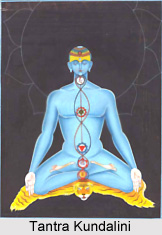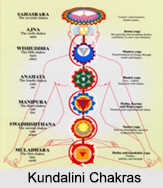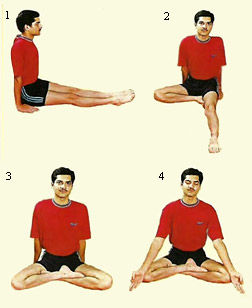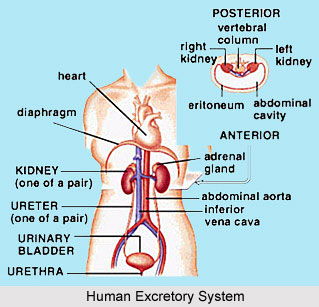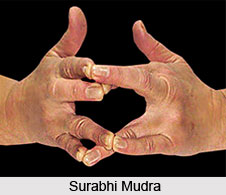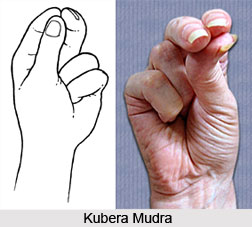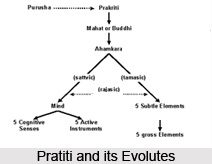 The twenty-third yogic sutra explains about the effects or outcomes of one`s action. They can necessarily be delayed or immediate. However, a sadhaka will gain knowledge or premonition about his death and other future happenings through his past deeds. The fruits of actions are governed in three kinds, which render one`s present happenings and end results by regularising the merits or demerits of the past life.
The twenty-third yogic sutra explains about the effects or outcomes of one`s action. They can necessarily be delayed or immediate. However, a sadhaka will gain knowledge or premonition about his death and other future happenings through his past deeds. The fruits of actions are governed in three kinds, which render one`s present happenings and end results by regularising the merits or demerits of the past life.
sopakramam immediate effect, intensively operative, active.
nirupakramam slow in fruition, non-operative, dormant
ca and, or
karma action
tat those, these, them
samyamat by restraint, control, mastery
aparanta death
jnanam knowledge
aristebhyah by portents, omens
va or
The effects of action are immediate or delayed. By sarhyama on his actions, a yogi will gain fore-knowledge of their final fruits. He will know the exact time of his death by prophecies.
The fruits of action (karmaphala) are related to time (kala phala). If a piece of wet cloth is fully spread out, it dries quickly; if folded or rolled up, it takes a long time to dry. Likewise, the fruits of action may be felt immediately or at a later time.
Omens or forebodings of death are of three kinds. They may strike one directly by intuition, by elemental disturbances, and through the voice of the divine. For instance, if one no longer hears the vibrations of the body, or cannot see a finger held before the eyes, it is a sign of imminent death.
Those who know something of Indian philosophy will probably be aware of sahcita karma, prarabdha karma and kriyamana karma, the three types of actions which bear fruit. The first is the merit or demerit compiled from former lives. The second refers specifically to the good or bad actions which have shaped one`s present life. The third one generates by one`s actions in this life. The effects of kriyamana karma are to come later - one can hence assume that Patanjali has included kriyamana karma and sancita karma in the category of nirupakrama, and prarabdha karma in sopakrama.
(11.12, 14; in.15, 18; iv.7.)





